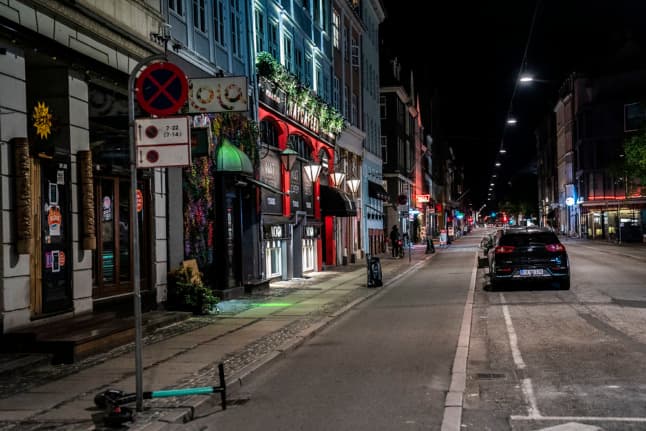Copenhagen police to ban people with criminal records from nightlife areas

Copenhagen Police have announced that it will implement four ‘nightlife’ zones from which people with certain types of criminal records can be banned.
The new zones will make use of a change in the law, which was passed by parliament in July, allowing police to enforce the restriction. Copenhagen is the first police district in the country to make use of the new law.
Four areas near the central part of the city will be considered ‘nightlife zones’. People with previous convictions for certain types of crime can be banned from the zones for up to two years.
The zones take effect on September 14th for an initial two-year period, meaning they will be in place until at least September 13th, 2023, Copenhagen Police said in a statement.
All four zones are located close to the central part of the city in either the Inner City or Vesterbro neighbourhoods. They include the streets Gothersgade, Vestergade and Vesterbrogade along with the popular Kødbyen (The Meatpacking District), which has a high concentration of bars, nightclubs and restaurants.
Persons who breach the ban can face a fine of 10,000 kroner for a first offence and up to 30 days in prison for repeat offences.
Police said they hoped to work together with local businesses to enforce the zones.
“The law enables exchange of information about persons with nightlife bans with bar owners. But we are currently waiting for more detailed information on how this will take place in practice,” Copenhagen Police director Anne Tønnes said.
Enforcement of the new rules will meanwhile rely on police patrols in the relevant locations, as well as police response to reports from the public.
The zonal bans can be applied to people with previous convictions including for certain crimes against the person or weapons offences.
Tønnes said that the zones have “no practical significance” for “completely normal, law-abiding citizens” other than their intended effect of “creating a more secure nightlife environment for everyone”.
READ ALSO: EXPLAINED: What changes about life in Denmark in September 2021
Comments
See Also
The new zones will make use of a change in the law, which was passed by parliament in July, allowing police to enforce the restriction. Copenhagen is the first police district in the country to make use of the new law.
Four areas near the central part of the city will be considered ‘nightlife zones’. People with previous convictions for certain types of crime can be banned from the zones for up to two years.
The zones take effect on September 14th for an initial two-year period, meaning they will be in place until at least September 13th, 2023, Copenhagen Police said in a statement.
All four zones are located close to the central part of the city in either the Inner City or Vesterbro neighbourhoods. They include the streets Gothersgade, Vestergade and Vesterbrogade along with the popular Kødbyen (The Meatpacking District), which has a high concentration of bars, nightclubs and restaurants.
Persons who breach the ban can face a fine of 10,000 kroner for a first offence and up to 30 days in prison for repeat offences.
Police said they hoped to work together with local businesses to enforce the zones.
“The law enables exchange of information about persons with nightlife bans with bar owners. But we are currently waiting for more detailed information on how this will take place in practice,” Copenhagen Police director Anne Tønnes said.
Enforcement of the new rules will meanwhile rely on police patrols in the relevant locations, as well as police response to reports from the public.
The zonal bans can be applied to people with previous convictions including for certain crimes against the person or weapons offences.
Tønnes said that the zones have “no practical significance” for “completely normal, law-abiding citizens” other than their intended effect of “creating a more secure nightlife environment for everyone”.
READ ALSO: EXPLAINED: What changes about life in Denmark in September 2021
Join the conversation in our comments section below. Share your own views and experience and if you have a question or suggestion for our journalists then email us at [email protected].
Please keep comments civil, constructive and on topic – and make sure to read our terms of use before getting involved.
Please log in here to leave a comment.